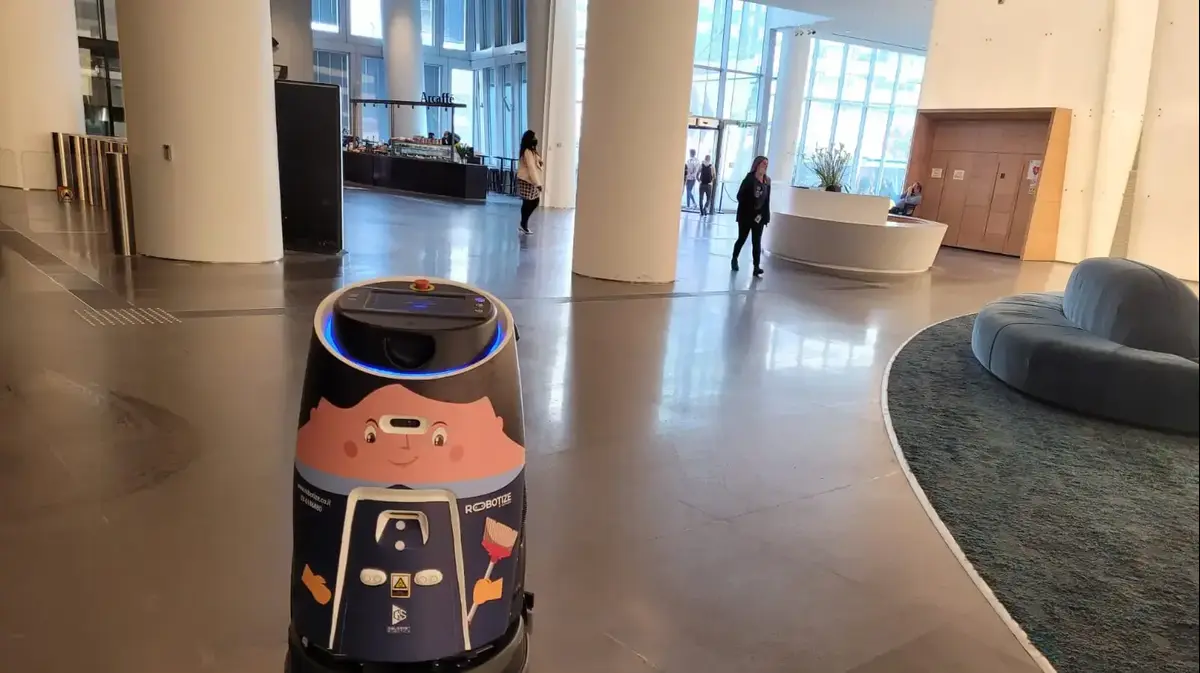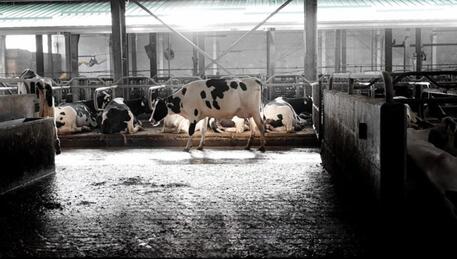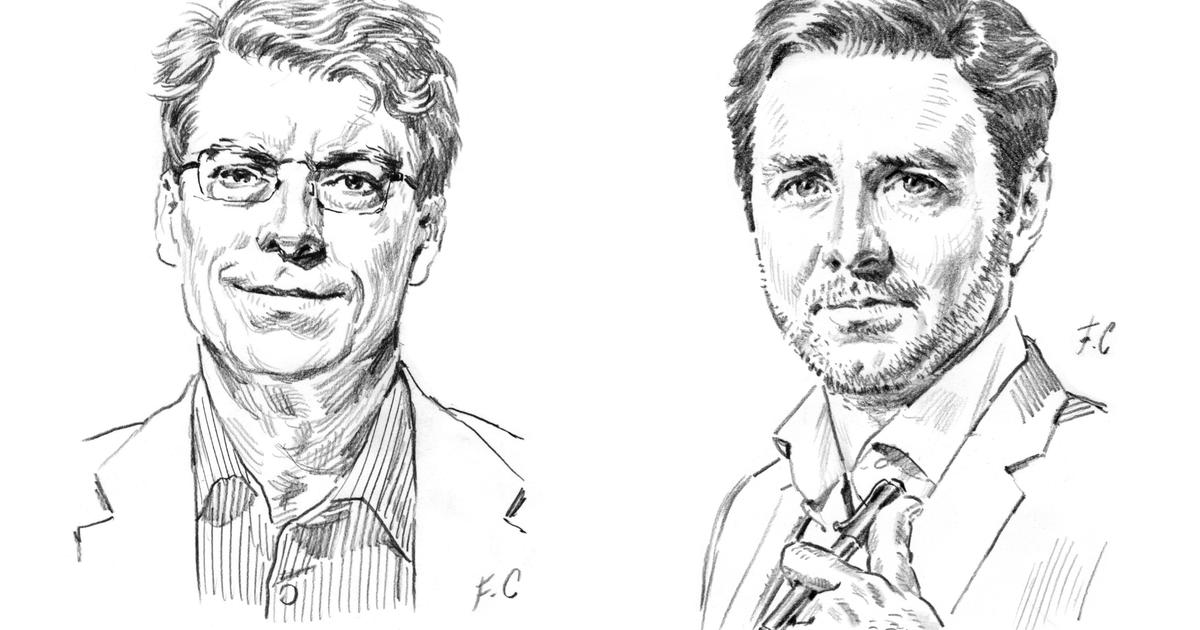- Click to share on Facebook (Opens in a new window)
- Click to share on Twitter (Opens in a new window)
- Click here to share on LinkedIn (Opens in a new window)
- Click to email a friend (Opens in a new window)
(CNN) - The robots. They come for their jobs. Those of you all.
For a long time the prediction of futurists and philosophers, the lived reality of technology that replaces human work has been a constant feature since the cotton gin, the assembly line and, more recently, the computer.
What is much debated in the imagination of Hollywood economists and producers is whether the future will look like "The Terminator", with the self-aware Schwarzenegger bots in the hunt, or "The Supersonic," with the obedient servants that leave us humans working very little and having a lot of time for leisure and family. The film's most chilling future may be Disney's “Wall-E,” where people are too fat to stand up, too busy looking at the screens to talk to each other and too distracted to realize that the machines have been empowered. .
We are deeply immersed in these representations, but the conversation about robots and work is increasingly combined with the debate on how to address the growing income inequality, a key issue in the 2020 Democratic presidential primaries.
- Racism with robots? Yes, a study that shows that human prejudices extend to robots
The workplace is changing. How should Americans treat it?
"There is no simple answer," said Stuart Russell, a computer scientist at the University of California at Berkeley, an associate professor of neurological surgery at the University of California at San Francisco and author of an upcoming book, "Compatible with humans: artificial intelligence and the problem of control. " "But in the long run, almost all current jobs will disappear, so we need fairly radical policy changes to prepare for a very different future economy."
In his book, Russell writes: "An emerging image is that of an economy where fewer people work because work is unnecessary."
That is a very scary or tempting perspective, depending a lot on whether you (and / or society) think that people should have to work and how society will put a price on human labor.
There will be less work in manufacturing, less work in call centers, less work driving trucks, and more work in health care and home care and construction.
MIT Technology Review tried to track all the different reports on the effect that automation will have on the workforce. There are many of them. And they suggest from a moderate displacement to a total review of the workforce with varying degrees of alarm.
One of the reports, from the McKinsey Global Institute, includes a review of how susceptible the automation could be to different jobs and discovers that hundreds of millions of people worldwide will have to find new jobs or learn new skills. Learning new skills can be more difficult than it seems, as CNN discovered in car factories, such as the one that closed in Lordstown, Ohio.
More robots mean more inequality
Almost everyone who has seriously thought about this has said that greater automation is likely to generate more inequality.
It is indisputable that companies have become increasingly productive but workers' salaries have not kept pace.
"Our analysis shows that most of the employment growth in the United States and other advanced economies will be in occupations currently at the top end of the wage distribution," according to McKinsey. "Some occupations that currently have low wages, such as nursing assistants and teaching assistants, will also increase, while a wide range of middle-income occupations will have the greatest job cuts."
"The likely challenge for the future lies in addressing the growing inequality and ensuring sufficient (re) training, especially for low-skilled workers," according to a report by the Organization for Economic Cooperation and Development.
A Democratic presidential candidate, Andrew Yang, has built his campaign to solve this problem. Yang blames the automation of jobs rather than outsourcing to China for the decline in US manufacturing and draws a direct line between that contracting manufacturing sector and the rise of Donald Trump.
"We need to wake people up," Yang recently told The Atlantic. "This is the reality of why Donald Trump is our president today, because we have already eliminated millions of American jobs and people feel they have lost the way forward."
If automation takes the job, should everyone receive a paycheck from the government?
Yang's answer to the problem is to give everyone in the US. In the US, regardless of the need, an income calls it a “liberty dividend,” of $ 1,000 per month. It would address inequality, both economic and racial, he argues, and allow people to seek work that adds value to the community.
It is not a new idea. Congress and President Richard Nixon almost approved such a proposal in the early 1970s as part of the war against poverty. But now, after decades of the Republican Party distancing itself from social programs, the idea of a universal basic income seems as science fiction as the new movie "Terminator" (yes, they are making another one) that will come out this year.
“Ninety-four percent of new jobs created in the US They are temporary or contractor jobs at the moment, and we still pretend that they are the 70s, where it is like 'You will work for a company, you will get benefits, you can retire, although we have completely gutted any retirement benefit, but somehow he will retire, everything will be fine, ”Yang said in that interview with The Atlantic. “Young people look at this and say: 'This doesn't seem to work.' And we are like, 'Oh, it's fine.' Not well. We have to grow. ”
He specifically points out that truck driving is a key profession for the US economy today, but that it could be fully automated in the very near future. Truck transport automation will help the environment, save money and help productivity, he says. But it won't help truckers.
On the other hand, driving a truck, even if it is an honorable job, may not be the ambition of many people's lives. In this way, robots would take jobs that humans might not want unless they had to, what they currently do.
“When you accept these circumstances, we are going to compete against technologies that have a marginal cost close to zero, then you quickly have to say OK, so how are we going to start valuing our time? What does it mean that the economy of the 21st century resembles a path that serves our interests and not the capital efficiency machine? ”He says. And that's how he, and many liberal and capitalist economists like Elon Musk, come to the idea of a basic income.
Yang said at a CNN hearing this year that it is not enough for people to organize as union workers to protect jobs.
"I don't think we have time to rebuild the workforce that way," he said. "We should start distributing value directly to Americans."
Creating a population that can survive on a basic income, without work, would end up changing the way society works completely.
“For some, a universal basic income (UBI) represents a version of paradise. For others, it represents an admission of failure, an affirmation that most people will have nothing of economic value to contribute to society, ”writes Russell.
Yang focuses more on the immediate threat that, according to him, represents automation for American jobs. And politicians are not talking about that honestly because they are too focused on being optimistic.
"You are a politician, your incentives are to say that we can do this, we can do that, we can do the other and, meanwhile, society crumbles."
What to do with our time?
Not everyone thinks that society would fall apart, and in reality there has been great concern about what people will do when productivity increases to a point where they don't have to work so hard.
In an important 1930 article, economist John Maynard Keynes wrote that humans would have to deal with their free time for generations to come.
"For those who sweat for their daily bread it is a long-awaited sweet, until they get it," he wrote, and then added that "man will face his real and permanent problem: how to use his freedom from pressing economic concerns, how to occupy free time, that science and compound interest will have won for him, to live wisely, pleasantly and well ”.
Instead of dealing with the problem of leisure, automation can often lead to unforeseen problems. The cotton gin made slaves in the southern United States not have to remove seeds from cotton, but it also led to an explosion of slavery as cotton was more easily produced.
And although it facilitates the lives of individual workers, managing the transition from one type of economy to the next (farmer to manufacturer, information specialist and now beyond) has been a key long-term reality for the American worker.
Is the pace of change different this time?
No one has thought more about this than the unions. The secretary-treasurer of AFL-CIO, Liz Shuler, agrees with Yang that automation is one of the biggest challenges we face as a country and is not getting the attention it deserves. But she is not worried about dystopia yet.
"The scare tactics are a bit extreme," he said in an interview, arguing that reports of tens of millions of US jobs lost by 2030 are likely to be exaggerated.
"Every time there has been a technological change in this country there have been those scenarios of the end of the world," he said in an interview.
It was already a problem in the 1950s, Shuler said. “You have (the then president of United Auto Workers) Walter Reuther, testifying before Congress, talking about how automation was going to change jobs and people were making these crazy predictions that if you brought robots to automotive plants there would be unemployment massive, ”he said.
Reuther's testimony is really interesting to read, by the way. Check it out. "The revolutionary change produced by automation is its tendency to completely displace the worker from the direct operation of the machine," he said. He argued that unions were not opposed to automation, but wanted more help from companies and government for workers facing a changing workplace.
"What ended up happening is what they call the negotiated consent," Shuler said, "where the unions went to the table and said 'OK, we understand, this technology is coming, but how are we going to manage the change? How? Are we going to have a voice of the workers at the table? How are we going to make sure that workers benefit from this and that the company can be more efficient and successful? ” Yang counteracts that argument by pointing out that automation has accelerated, making it difficult for workers, employers and the government to adjust. "Unlike previous waves of automation, this time new jobs will not appear fast enough in large quantities to compensate," he said on his website.
Somewhere in between is where we will end
Shuler said American workers need to have a conversation about the future of work more urgently today.
"We all have to make a decision," he said. “Do we want technology to benefit working people, and as a result, our country does better? Or do we want to follow a path of this dark and dystopian vision that work will disappear and people will have nothing to do and we will only be essentially working on the whims of a group of robots?
Somewhere in the middle, he argued, is where we will end.
“We will work together with technology as it evolves. A new job will emerge. We want to make sure that workers can make a transition in a fair, fair and responsible manner and we can only do so if workers have a seat at the table. ”
The long term future
Shuler has an interest in workers and their rights today, but Russell writes that in the long term, as work automation becomes more tangible, the country will have to change its complete perspective on work and what we teach children and people to fight for.
"We need a radical rethinking of our education system and our scientific enterprise to focus more attention on the human world than on the physical one," he writes. "It sounds strange to say that happiness should be an engineering discipline, but that seems to be the inevitable conclusion."
In other words: we will have to discover how to be happy with robots and automation, because they are coming.
Future Roots








/cloudfront-eu-central-1.images.arcpublishing.com/prisa/LFO6NYKDYNGQJMNQRNDG6YRK7Q.jpg)
